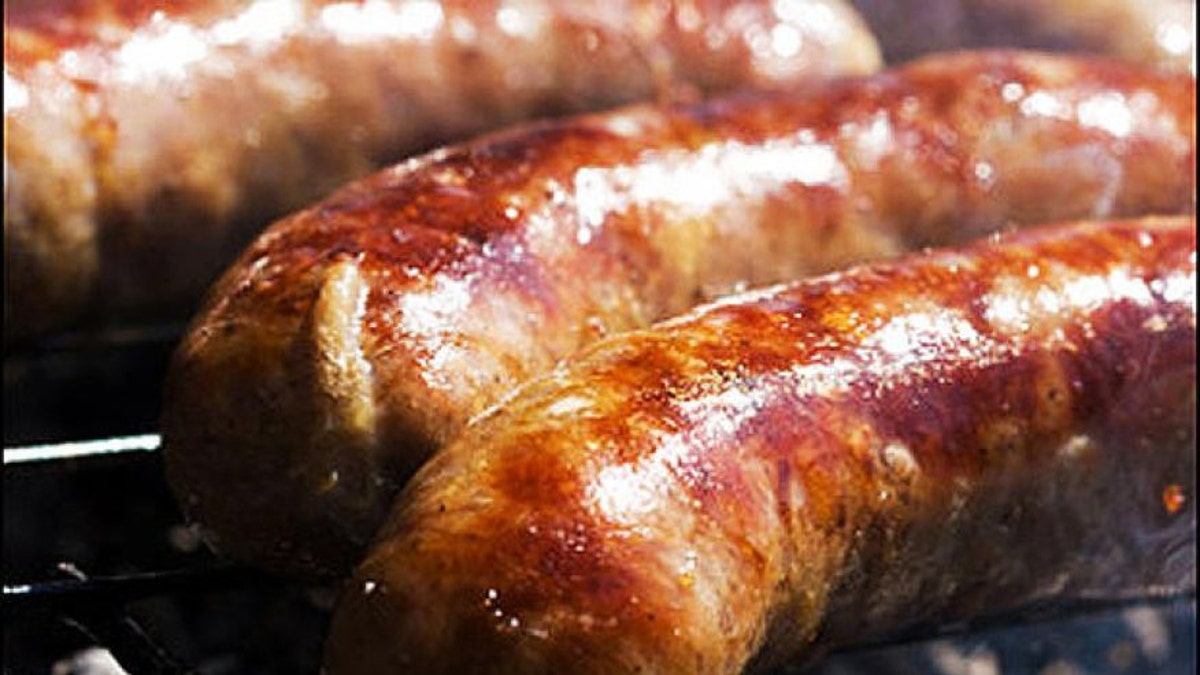
Meat lovers and producers are up in arms after the World Health Organization's findings that eating hot dogs, ham and other processed meat can cause colorectal cancer.
The North American Meat Institute said that the research that looked at more than 800 studies on cancer and consumption of red meat or processed meat “defies common sense” and ignored numerous studies showing no link between meat and cancer.
"Scientific evidence shows cancer is a complex disease not caused by single foods and that a balanced diet and healthy lifestyle choices are essential to good health," writes Barry Carpenter, president of the North American Meat Institute, in a statement.
Data provided by 10 studies suggests that each 50g portion (about one sausage or about two pieces of bacon) of processed meat eaten daily increases the risk of bowel cancer by 18 percent. Weaker links have been found with other types of the disease, including stomach cancer.
Hot dogs, beef jerky, bacon, canned meat, corned beef, sausages and ham all fall under this category and the WHO placed such products in the same category as smoking and asbestos, based on its certainty of a link with cancer.
The National Cattlemen's Beef Association said that cancer is too complex to be blamed on any one cause, like meat.
"We simply don’t think the evidence support any causal link between any red meat and any type of cancer," said Shalene McNeil, executive director of human nutrition at the National Cattlemen's Beef Association.
Hormel, the makers of Spam and other processed meats, told FoxNews.com that its own Health, Science and Wellness Advisory Council will be reviewing this report with its scientists and nutrition experts.
“At Hormel Foods, we understand that good nutrition is an essential consideration in daily life and consumers are increasingly looking to purchase products that will add to their overall health and well-being,” the company said in a statement. “Hormel Foods is committed to the health and safety of all of the products in its portfolio.”
So what’s a consumer to do?
Technically, processed meat means anything more manipulated than cut or ground. But typically it’s the meat which has had its flavor enhanced through salting, curing or smoking – or other methods designed to keep it preserved-- that is the concern.
N-nitroso compounds and polycyclic aromatic hydrocarbons – both suspected cancer-causers – can form during meat processing, while high-temperature, barbecue-style cooking can also produce the chemicals.
The Department of Health's current advice is to eat no more than 70g of red meat per day on average, yet dietary surveys suggest 40 percent of men currently eat more than 90g of red and processed meat on a daily basis, placing them at a higher risk. To put that in perspective a quarter-pound hamburger patty is about 114 g, or a bit more than the size of a deck of cards.
But judging from reaction to the report on social media, people aren’t prepared to give up their meat just yet.
Within minutes of the WHO's news, hashtags such as #freebacon began trending on Twitter.
Health experts recommend eating a variety of foods, including plenty of fruit, vegetables and cereal fiber, and say exercise and weight control can cut down on cancer risks. And the WHO report does mention that genetics play a big role in the chances of getting cancer.
Acclaimed bacon and pork producer, Allan Benton from Benton’s Smoky Mountain Country Hams in Tennessee, has heard the cancer argument before and is taking a measure approach to the news.
"When we hear reports like this we tend to over react. As I get older I tend to sit on the fence and see what happens," he said, adding that he normally limits the consumption of processed meat in his house.
His famous bacon, used by many of the nation's top restaurants, is made only with salt and brown sugar and doesn't contain any nitrates or nitrites, a curing process that the WHO report doesn't specifically mention.
But he says if you're going eat bacon, it might as well be the good stuff.
"I treat my bacon like I do my bourbon. If I go, I want to go drinking really fine bourbon and I want to do eating really good bacon," he said.
